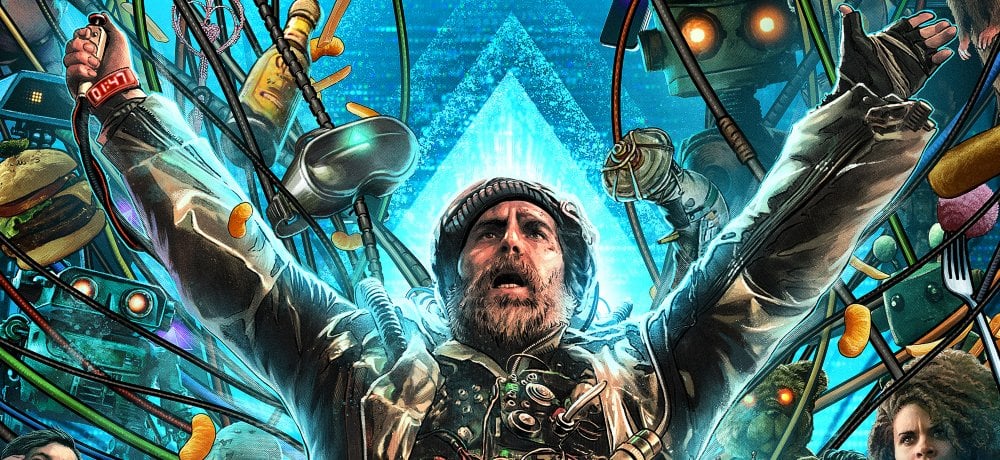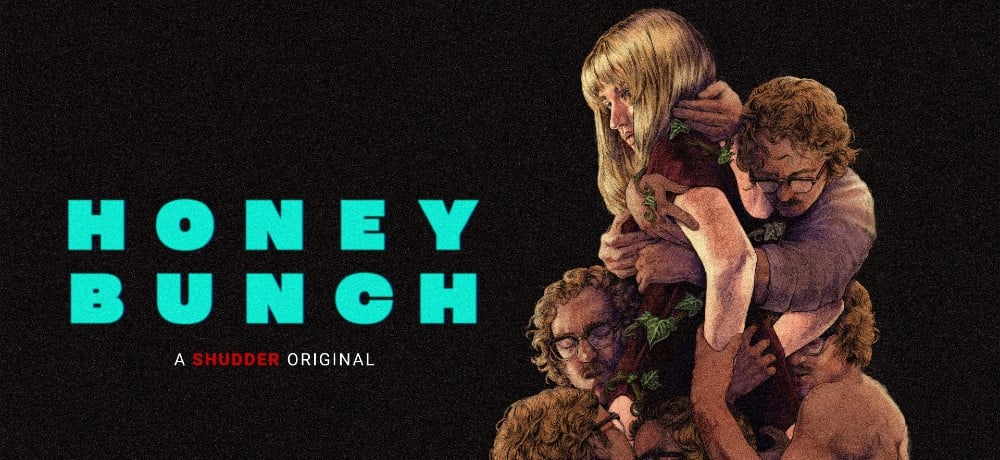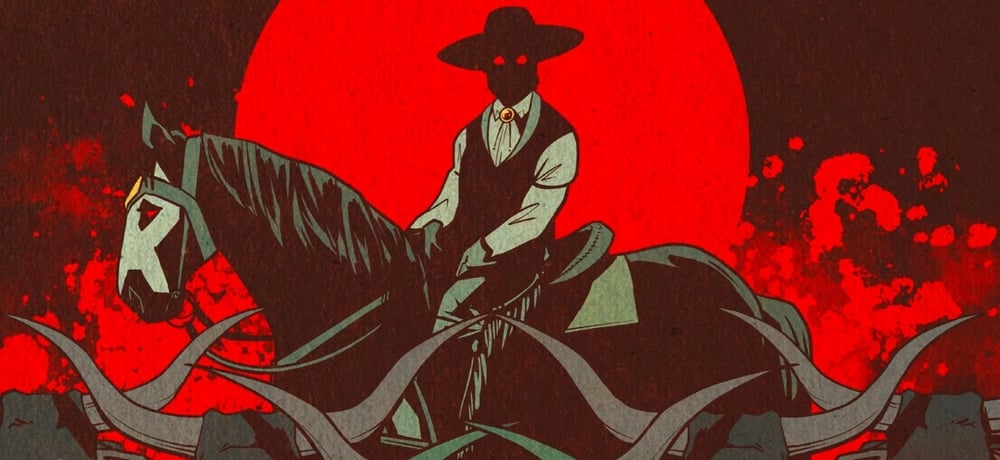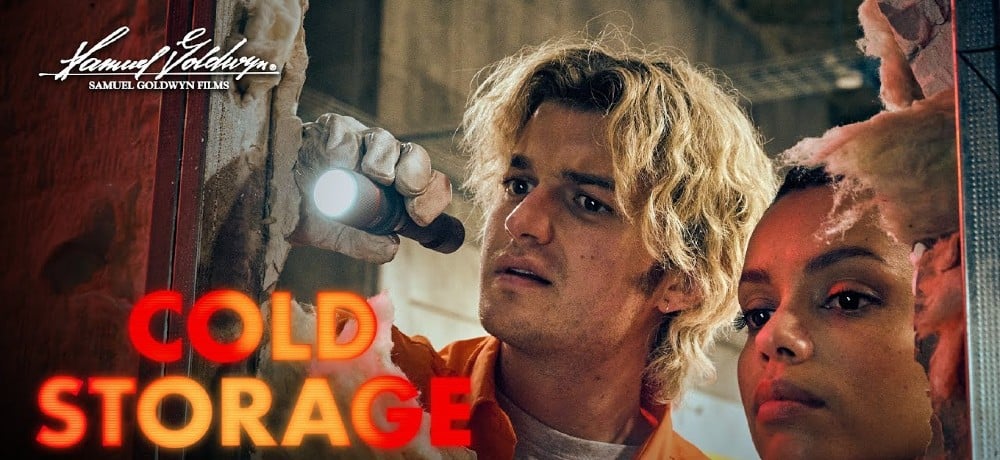





I have a huge appreciation for Australian cinema, so I was thrilled to have the opportunity to sit down and speak with several folks involved with Killing Ground, the brutal survival horror film written and directed by Damien Power and starring Aaron Pedersen, Aaron Glenane, Harriet Dyer, Ian Meadows, Maya Stange, Julian Garner, and Tiarnie Coupland.
Killing Ground premiered over the weekend at the 2017 Sundance Film Festival, and Daily Dead caught up with Power, Glenane, and Stange to talk about their experiences collaborating on the project, the importance of building trust on the set of the brutal thriller, and much more.
Look for more from the Sundance Film Festival all this week, right here on Daily Dead!
Great to speak with you today, guys. Damien, I'd love to start with you and hear about approach to this project and creating these villains, German (Pedersen) and Chook (Glenane), who you end up getting lost with, too, and that's a credit to your [Glenan’s] work in the film as well. Because for as much as they are horrible, terrible people, you just can't stop watching them.
Damien Power: Thank you. The kernel of the idea occurred to me as an image, an image of an orange tent in the bush, nobody around, just kind of popped into my head. The more I thought about it, the more I thought about what happened to the people in the tent? That suggested a story to me.
That, as well as those experiences where you go out camping or out into the wilderness and you're in the middle of nowhere and you have that moment when you realize how far away from civilization you are and how far away from help you are. That mood informed my thinking about what was going on in the story.
As well as that, I've always been interested in thrillers, and particularly survival thrillers and those character-driven films from the ’70s, and so I set out to make the kind of film that I like to watch.
To your credit also, there have been so many great survival stories out of Australia, so it's a really tough landscape to traverse without feeling like you're trying to be those other movies, but you totally subverted all of those expectations here.
Damien Power: If you're working in that kind of genre field—and I know that we were working in a tradition of Australian cinema, especially about white Australians’ unease in the Outback in the bush—you have all of those kinds of conventions of thrillers and survival thrillers, particularly people going into the bush and bad things happening. If you are going to do that, you need to try to bring something new to it.
For me, part of that was the non-linear timeline. Because usually, those kinds of thrillers are always relentlessly linear—for good reason. They sew you into the characters, but because I started the story thinking about the people that belong to that tent, I wanted to tell the story of the whole events that happened in that place.
Aaron and Maya, what were your first impressions of the script for Killing Ground and your characters in particular?
Aaron Glenane: What I was drawn to is that Damien just doesn't hold back. Everyone's at risk in this. It was that and the non-linear structure of the story, which I don't know if I've ever seen that in a survival thriller. I know I've seen it in other genres, but a survival thriller, I don't know if I've seen that before. I was just hooked and it carried me along the whole way.
Obviously, the character Chook, like you were saying about the villains, I really wanted to create a human being out there rather than just a villain you felt detached from. And, again, going back to the place, working with Aaron Pedersen, who I found so interesting that Damien cast an indigenous actor in the role rather than a white guy, because it would have added a totally different element to it. Having an indigenous man in that role, and like you said, when Aaron talked to you about that role, talking about this sickness in the land, that carries through for our motivation.
There's a great line in the film where Maya's husband in the film, [played by] Julian, says, “This is massacre ground we're standing on,” and that plays into the history of Australians or the first settlers’ treatment of indigenous Australians, and Aaron and I spent a lot of time talking about that when we first met up, discussing and just trying to justify our actions in the film. Coming from this place, sitting in this room, talking about the history of the land that we're on and letting that inform our actions throughout the film.
Hopefully Chook begins in one place, someone whose consistently rejected in his life and doesn't really have a whole lot going for him, and over the course of the film, even though his actions are not so great, he starts to get some empowerment and ownership in his life. By doing not great things—yes—but hopefully you can, in a tiny way, relate to them on a human level.
Maya Stange: I was so drawn to the script primarily and also loved the character of Margaret and the incredible, intense, horrific journey she goes on. All of the characters are really well-drawn, too.
And then, when I saw the film, finished, I was actually speechless. I was shaking. I was so affected by the film in a completely different way than I had been by seeing myself in a movie before. I was genuinely moved and shaken to the core by this film and was just so proud to be part of it, because I really feel like it came together on this one. You never know at the beginning of a shoot if that magic is going to happen, and I feel like on this one, it did.
There's a lot of intensity in this film, and there are a lot of moments of raw brutality, too, which I'm guessing means that you guys had to build up a trust between yourselves. Can you talk about that process, because as you said, this goes into some very uncomfortable places, but I will say, none of it ever feels exploitative.
Damien Power: That was really important for me in terms of how we depicted those scenes. But you're right, it was really important for me, as a director, to try to create a safe space for these guys to work and it's one thing to write it, it's another thing when you step on the set to shoot it.
It was really interesting because just through kind of a happy accident and good scheduling, we managed to shoot the beginning of the film, sort of the happy times, right at the start. And then the two Aarons showed up and everything changed. The mood on the set changed and I remember we had shot one of the more confronting scenes and my editor was looking at rushes at the time and we put together a little trailer, it was kind of a halfway through the film moment, just to show the crew as a bit of a motivator—there were long hard nights of work ahead.
And so we had this little trailer. Everyone turns up and they're happy and then, a kind of cut to black and a scream and some of the more shocking material. I remember we set up a little tent and we showed everyone at lunchtime and everyone went, “Whoa, that's the film we're making.” It was a real reminder.
Because it was so important for me that this feels real, and the consequences feel real, and the violence really feels like pain and suffering, these guys just needed that protection and space to be able to go there and give those amazing performances.
For the actors, did you guys get to splinter off and get some time together to build that camaraderie between your respective groups?
Maya Stange: Definitely.
Aaron Glenane: Aaron [Pedersen] and I had a night together. Actually, we had about four hours. We both arrived at where we were shooting in the afternoon and hung out from 5–11 that night. There's a cool story about Maya and Julian turning up midway through Aaron and I's get together, too.
Maya Stange: Yeah, when we met these guys, we had to drop the call sheets off at their motel room—we were staying at the same motel. And Julian Garner, who plays my husband in the film, had been bonding quite a lot with Tiarnie, who plays our step-daughter, so we'd spend a lot of time talking our character history and our relationships and we were in our beautiful, sweet little hippie family bubble, and we were hanging out at the hotel and we got the call to drop the call sheets off at the door of the Aarons.
So we walked over there and we heard the music and the voices coming through the door and we both looked at each other and felt like we had chills. It was actually frightening to knock on that door because of the energy emanating from that room where they were full-on bonding and creating their relationship. It was palpable, and that was the moment that Julian and I agreed that we were just onto something with this film.
You guys were wild. You were in this head space that was just so out there and we were so sedate and calm and sweet, and you were doing a completely different kind of character bonding and we were genuinely a little unsettled and on purpose didn't get too close to them. We thought, “Let's keep this unsettling feeling and distance so we can really have that experience on the day [of shooting], believing that these guys really are these quite frightening individuals.” And that wasn't that hard, I'd have to say.
Damien Power: Actually, Aaron has a great post-screening story.
Aaron Glenane: Yeah, after one of our screenings, I had this homicide detective come up, who'd been working for years on serial killer cases back home. There are some famous ones—the Ivan Milat case, the Murphy brothers case—that she had worked on. She'd kind of gone through some PTSD after her work and watching the film she said, “This takes me straight back to these cases.”
And she'd interviewed these guys who had committed these acts. She'd sat opposite them, and it was the greatest compliment to hear from her that she felt like Aaron and I had captured that spirit of these kinds of guys. That was probably the greatest compliment, coming from a homicide detective that had been working directly with this kind of headspace for a long time.
Damien, so much of this film takes place in the daylight, but then for the final moments, you immerse us in this bewildering darkness, which really adds to the confusion of those moments. Could you talk about the decision to do that for your finale, and was it one of your most challenging scenes to get right visually?
Damien Power: Yeah, I think so. Simon Chapman is a fantastic DP. He's shot five shorts for me, and after five, he said, “No more, a feature, please.” We have a really great creative shorthand. We looked at, how do you make the daylight sinister or scary? And how does that work because, as you say, so much of the film is set during the day. But of course, the nights bring their own challenges, just even in terms of the logistics of a night shoot and getting things right and just getting things done in time because everything takes so much longer to set up in the darkness.
It was our feeling to try to keep it as real as possible. We shot it with a lot of wide lenses and with quite a deep depth of field. So we had the cameras really close to the actors, and you can feel that difference. It's almost more frightening when you can see right into the background—you can see that space and it becomes a little less picturesque. We carried that same spirit to the night shoots where we wanted it to look dark, so, like the characters, you're grasping to see what is going on and understand exactly what is happening in that confusion.
———
In case you missed it, check out Heather's Sundance review of Killing Ground, and stay tuned to Daily Dead for more live coverage of the Sundance Film Festival.